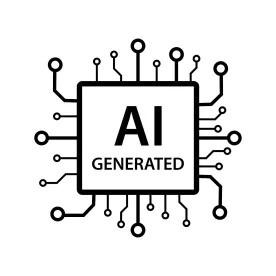Hi TCPAWorld!
On August 18, 2023, the US District Court for the District of Columbia answered a major question for a lot of artists who are utilizing AI to create content – “whether a work generated autonomously by a computer falls under the protection of copyright law upon its creation.”
Link: Thaler v. Shira Perlmutter, Case No. 22-cv-01564-BAH.
The court gave a clear answer. No.
So the backstory here is that Steven Thalar used an AI program that he calls the “Creativity Machine.” The “Creativity Machine” created a piece of artwork, seen below, titled “A Recent Entrance to Paradise” which Thalar tried to copyright.

When Thalar applied for the copyright, he listed the author as “Creativity Machine.” Thalar listed himself as the “Copyright Claimant” essentially arguing that because he owns the machine the copyright should transfer to him.
The court completely disagreed with that argument and made that abundantly clear in their 15-page written opinion.
Now, what I thought was interesting, was the court’s comparison of the AI created image to that of a photograph. The current copyright law includes photography even though it is more or less completely machine generated. The Supreme Court in a different case reasoned that photographs still “amount[] to copyrightable creations of ‘authors,’ despite issuing from a mechanical device that merely reproduced an image of what is in front of the device, because the photographic result nonetheless ‘represent[ed]’ the ‘original intellectual conceptions of the author.'” But the D.C. court here could not say the same for Thaler’s work because based on his copyright application that work completely lacked human authorship in any way.
The court also gave lots of examples of what are and are not works eligible for copyright:
- Celestial/divine beings’ creations. No.
- A human writing down questions and selecting/arranging the resulting “answers” derived from divine/celestial beings. Yes.
- A lady writing down notebooks worth of words from a “voice” that would speak to her then two other humans revising and editing those notes to put into book form. Yes.
- A garden. No.
- A monkey taking pictures of himself. No.
In short, whether or not a work is copyrightable all depends on whether or not a human is sufficiently involved in the work’s creation and whether or not a human has ultimate creative control over the work.
Or as the court so eloquently put it, “[h]uman authorship is a bedrock requirement of copyright.”
So does this mean that AI artwork is always ineligible for copyright?
While we don’t have a definitive answer from this opinion, there’s certainly an implication that if human involvement is substantial enough, then it could potentially meet the eligibility criteria. The question of course still remains of how much human involvement will be required.
The developments at the intersection of AI and copyright law will certainly be interesting.




 />i
/>i

